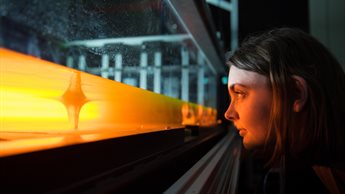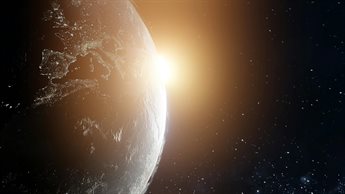Space

A student working in the Black Hole Laboratory

Earth from space (earth observation)
Expertise
The Space thematic group contains a diverse range of academics and researchers with extensive experience and capabilities to scientific knowledge, technology and applications in space fields. The interests of the group spans multidisciplinary research across physics, engineering, pharmacy, biosciences, geographical sciences and more.
Specific areas of expertise within Space
| Earth observation and geosciences |
Space physics and astronomy |
Space engineering and material sciences |
Space biosciences, pharmacy and medicine |
| Global Navigation Satellite Systems (GNSS), positioning and navigation-based services |
Fluid and granular dynamics in weightlessness |
Manufacturing, assembly and repair operations in space |
Spaceflight effects on human health |
| Satellite technology including, CubeSats and nanosats, free-space optical communications (FSOC), and Satcom |
Asteroids and space debris |
Generation and characterisation of novel alloys |
Astropharmacy, medicine and healthcare in space |
| Environmental and engineering applications of EO data |
Black holes, galaxy cluster structures and optical astronomy |
Space missions and payload design |
Space agriculture, food processing in space and space food |
| Geoinformatics and data modelling |
Magnetic fields and diamagnetic levitation |
Spacecraft engineering and avionics |
Life support in space |
People
Over 100 academics and researchers work within and across this diverse range of research themes to deliver novel, cross-disciplinary, integrated research projects to both industry and research funders.
Research Facilities
Research facilities to which we can provide access
| CubeSat and Small Satellite Laboratory |
Superconducting magnet |
Software and access to major observatories and telescopes - Chandra, XRISM, ALMA, JWST, VLT, XMM-Newton, VLA, NASA EMTG |
Bi-directional radio ground station (UHF, VHF, S-Band) |
| Manufacturing and digital assembly - Omnifactory® |
Cloud Computing |
Satellite ADCS HWIL facility (Attitude Determination Control System HIL) |
GNSS signal simulator |
Track Record
Our specialist aerospace teams at UoN work in partnership with a range of major space companies and SMEs. We also have an extensive track record in securing key UK and EU funding to further space research and development for our industry partners.

Download this page as a PDF